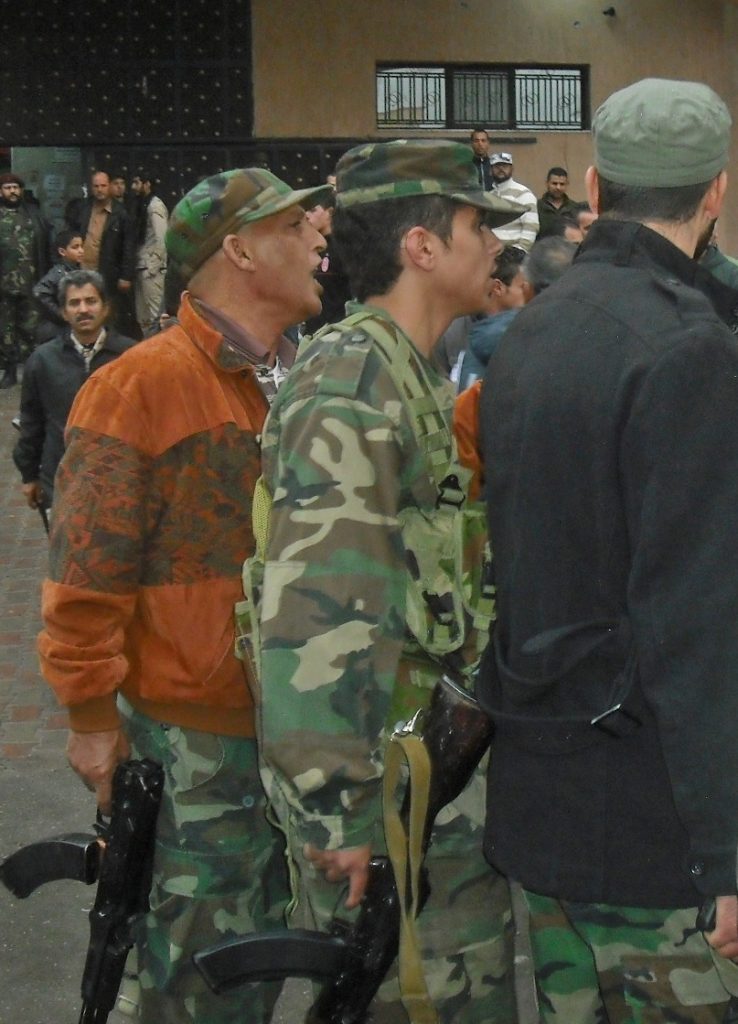
It is difficult to understand, at least from the outside, what is happening in Libya right now. The past several weeks have highlighted the danger and difficulties the country’s feeble political institutions face to manage day-to-day affairs, let alone resolve the most pressing political issues. It now appears that the revolutionary groups that recently besieged ministries and other public buildings in Tripoli, to force the General National Congress (GNC) to pass the political isolation law, were simply pawns in a larger plan. The goal was not simply the adoption of the law, in and of itself, but rather to manufacture a political crisis that would force the Prime Minister Ali Zidan to resign. This would pave the way for a new leader who would be more amenable to the values and politics of the political groups allied with the armed revolutionaries, such as the Muslim Brotherhood and Abdulwahab Al-Qaid’s al-Wafa’a bloc.
The attempt to topple Zidan succeeded only partially because of resistance from the National Forces Alliance (NFA) coalition headed by Mahmoud Jibril, and the reaction of many civil society groups fearing the rise of an Islamic regime to power. The actions of unknown extremist groups that have targeted police stations, the French Embassy in Tripoli, and most recently a hospital in Benghazi, raise further concerns. The latest attack in Benghazi shows a dangerous escalation in the actions of the extremists and a consequent risk of the collapse of the security structure in Libya. Security forces loyal to the government have been weakened by the absence of strong leadership in recent months, particularly in the army, and Chief of Staff Yousef Mangoush struggling to keep his post.
Added to this dire picture is the fact that the adoption of the political isolation law will mean enormous consequences for the stability of the country. Instead of moving toward a national reconciliation effort to reintegrate many who feel marginalized in the post-revolution period (because of their presumed affiliation with the former regime), the passage of this law will only serve to reinforce their sense of despair and hopelessness in trying to return to Libya.
As a result there are no clear winners from the passage of the law and the brinkmanship of militias, but rather a dangerously gridlocked situation on the ground. In an attempt to resolve the situation, a group of mediators headed by Sheikh Ali Sallabi launched a series of meetings in Tripoli in the last few days with the intention of finally striking an agreement between the major political groups—Jibril’s NFA, the Muslim Brotherhood, and al-Wafaa. According to sources privy to the talks, the basis for an agreement consists of a cabinet reshuffle including the ministers of defense, interior, justice, foreign affairs, among others. The agreement would also address the security situation with a possible change of the chief of staff, and the creation of a joint committee of thuwwar (revolutionary militias) who would coordinate armed support for the new government. However, it remains unclear whether Zidan would continue as Prime Minister or not.
It is also unclear if the three main political forces will agree on such a plan, and the details are still very sketchy and imprecise at this early stage. Nevertheless, a positive trend seems to be emerging. Negotiations for an agreement that would allow for the realization of a stable government capable of drawing a larger consensus—and the application of these policies to develop a plan of action for institution building and restoring infrastructure—is what the country needs most. Democracy itself may be victim given that this change has not been brought about by peaceful, open, and transparent means, but rather through armed pressure, at least in part. This reality may displease the ideals of those working for international nongovernmental organizations (NGOs), who optimistically hoped that a country emerging from forty years of horrible dictatorship and eight months of civil war would swiftly rebuild its state institutions.
A healthy dose of Machiavellian realism is needed today to overcome the many roadblocks on the path to creating a pluralist system in Libya, and if extra-parliamentarian agreements are needed to achieve this result, then Libyans must accept this compromise and move forward. Nevertheless, this negotiated approach may have a positive outcome only in the short-term since it does not include a national dialogue intended to discuss the identity and the future of the country, as well as the reintegration of thousands of Libyans marginalized after the war and left at the periphery of Libyan politics with no rights or hope but only violence and revenge. Sheikh Sallabi has always been a supporter of a national reconciliation program because he acknowledges the importance of inclusion and acceptance as a tool to defuse opposition and extremism. Many Libyans are hopeful that he succeeds in mediating among bitterly divided groups, and introduces a viable program of national reconciliation within the framework of the political agreement being discussed in Tripoli at this moment.
Karim Mezran is a senior fellow with the Council’s Rafik Hariri Center for the Middle East. Photo Credit.
Image: Libya2.jpg
